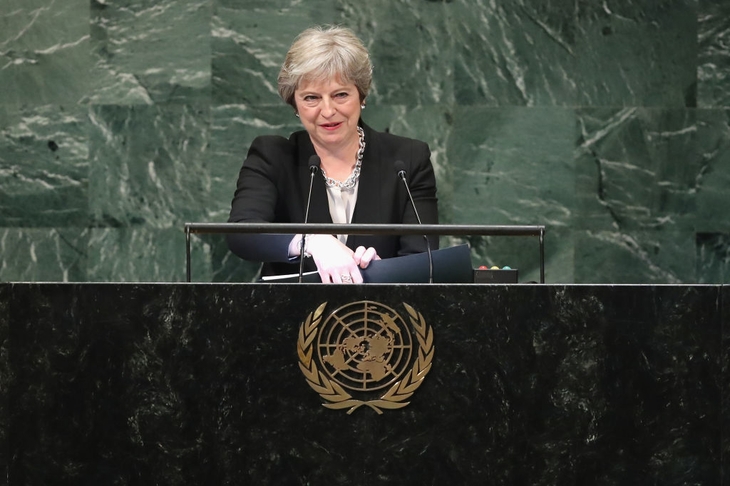This article was originally published on Spectator USA.
Did British prime minister Theresa May take a shot at Donald Trump in yesterday afternoon’s address to the UN General Assembly? Or was Trump a proxy target for a blond populist closer to home, Boris Johnson?
On Tuesday, Trump rejected the ‘ideology of globalism’ and defended the nation state and its ‘doctrine of patriotism’. The next day, May mounted the same stage and implicitly rejected Trump’s stance:
‘We have seen what happens when the natural patriotism which is a cornerstone of a healthy society is warped into aggressive nationalism, exploiting fear and uncertainty to promote identity politics at home and belligerent confrontation abroad, while breaking rules and undermining institutions.’
The United States under Trump isn’t the only state to fit that description: much of it fits China, Russia and Turkey too. But who, other than the United States, could May have had in mind when she referred to past ‘mistakes’ and failed efforts to ‘impose democracy on other countries through regime change’?
Apart, that is, from her own Conservative party, and her predecessor as prime minister, David Cameron.

Get Britain's best politics newsletters
Register to get The Spectator's insight and opinion straight to your inbox. You can then read two free articles each week.
Already a subscriber? Log in








Comments
Join the debate for just $5 for 3 months
Be part of the conversation with other Spectator readers by getting your first three months for $5.
UNLOCK ACCESS Just $5 for 3 monthsAlready a subscriber? Log in